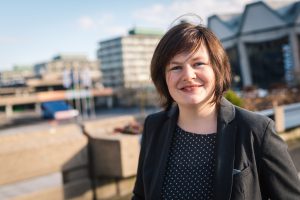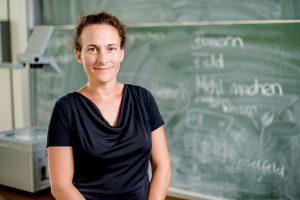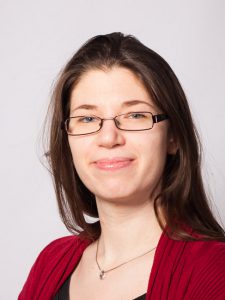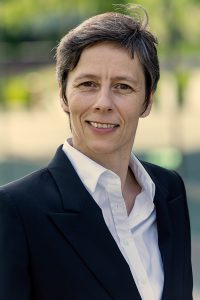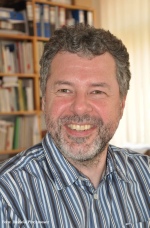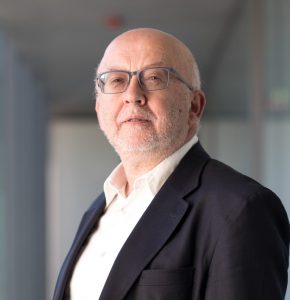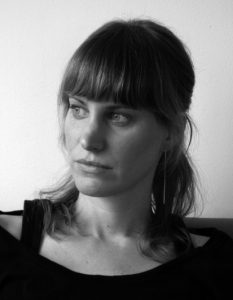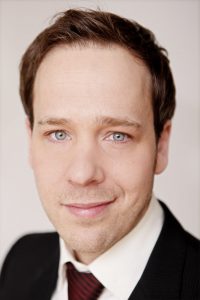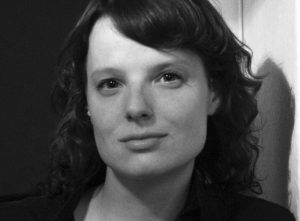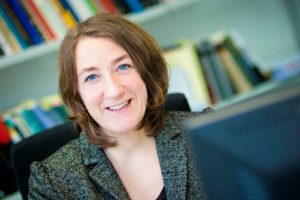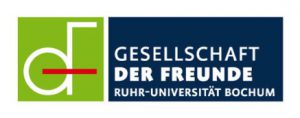It is our great pleasure to announce the names of our Scientific Board Members for the IFL2018 conference in Bochum, Germany. We are delighted to be working with these distinguished scientists and would like to thank you all in advance for your work, support and efforts:
Prof. Dr. Sandra Aßmann (Ruhr-University Bochum, Germany)
Prof. Dr. phil. Sandra Aßmann
Professor of Educational Sciences with a focus on Social Spaces and Places of Non-Formal and Informal Learning
Institute of Educational Research; Ruhr-University Bochum, Germany
Research Focus: media activities of children and adolescents in informal and non-formal contexts of learning, game-based learning
Web: http://ife.rub.de/institut/personen/node/1046
Statement:
Across different disciplines, the study of space has undergone a profound transformation – also known as „The Spatial Turn“. Also the Educational and Social Studies, which concentrate on the phenomenon of learning are part of this transformation. This is only logical: Learning takes place in a variety of (informal, nonformal and formal) contexts which interact with each other. Furthermore, in the 21st century we cannot think about social spaces and places of learning without regarding (digital) media and its effects on spatial circumstances. Against this background, I am very glad to invite international researchers from different disciplines to Bochum to discuss the exciting and important questions of our learning society.
Prof. Dr. Grit im Brahm (Ruhr-University Bochum, Germany)
Prof. Dr. phil. Grit im Brahm
Professor of Educational Sciences
Development of Teaching and Empirical Educational Research, Working Group School Research, Institute of Educational Sciences; Ruhr-University Bochum, Germany
Research Focus: educational trajectory including second-chance education, development of teaching, balance between school and personal life of adolescents
Web: http://ife.rub.de/institut/personen/node/126
Dr. Julia Eberle (Ruhr-University Bochum, Germany)
Dr. phil. Julia Eberle
Senior Researcher
Educational Psychology Research Group, Institute of Educational Science; Ruhr-University Bochum, Germany
Research Focus: situated learning, computer-supported collaborative learning, socio-motivational aspects of learning
Web: http://ife.rub.de/institut/personen/node/594
Statement:
Providing an evidence base for guiding the effective and beneficial design of future learning opportunities is one of the central tasks of educational research. This includes the investigation of affordances, opportunities, and challenges arising from the integration of digital technology, virtual learning tools, and informal learning communities into formal learning spaces. I am very much looking forward to learning more about the different perspectives and ideas on these topics that will be presented and discussed during this conference
Prof. Dr. Petra Grell (Darmstadt University of Technology, Germany)
Prof. Dr. phil. Petra Grell
Professor of Educational Sciences with the focus on Media Literacy
Institute of Media Literacy; Darmstadt University of Technology, Germany
Research Focus: interactive media in institutional teaching contexts, games and gamer experiences in digital worlds
Web: http://www.medienbildung.tu-darmstadt.de/team_medienbildung/petra_grell/petra_grell_1.de.jsp
Prof. Dr. Theo Hug (University of Innsbruck, Austria)
Prof. Dr. phil. habil. Theo Hug
Professor of Educational Sciences, Coordinator of the Innsbruck Media Studies Research Forum
Department of Media, Society and Communication; Leopold-Franzens-Univeristy Innsbruck, Austria
Research Focus: media education, philosophy of education, mobile learning, microlearning, research methodology and theory of knowledge, medialization and philosophy of science
Web: http://hug-web.at
Statement:
According to various conceptualizations of ‘space’ and ‘turn,’ spatial turns open up a wide range of possibilities for re-thinking seams of formal and informal learning contexts. This applies to both, relations to other turns like cultural, ecological, digital, or medial turns, and concepts, models, and practices of learning on individual, organizational, generational, or societal levels. This implies considerations beyond the frequently invoked trinity of behaviourism, cognitivism, and constructivism in learning theory.
Prof. Dr. Edwin Georg Keiner (Free University of Bozen-Bolzano, Italy)
Prof. Dr. phil. habil. Edwin Georg Keiner
Professor of Education, Vice-Dean for Teaching
Faculty of Education; Free University of Bozen-Bolzano, Italy
Research Focus: foundations and comparative history of education and education research
Web: https://www.unibz.it/de/faculties/education/academic-staff/person/5639-edwin-georg-keiner
Statement:
In times of (perceived ?) uncertainties, insecurities and ignorance we obviously prefer – sometimes explicit, sometimes implicit – dichotomizing constructions: digital and non-digital, formal and informal, text and context, learning and living, real and virtual, eutopic and dystopic, old and new. It is especially the metaphor of places and spaces (plural!), which seems to transcend such binary constructions by suggesting to reconstruct such constructions as constructions, especially if time is considered additionally. This means that ‘walking on the edge’, changing sides and perspectives, travelling ‘in between’, seems to be an adequate researcher’s privileged, fishtailed and Janus-headed position, within which s/he defends subtle questions against too quick answers, and communicatively and methodologically breeds, relativises and limits processes of constructing and deconstructing our scholarly world views.
Prof. Karina Nimmerfall (University of Cologne, Germany)
Prof. Karina Nimmerfall
Karina Nimmerfall is a visual artist and professor of Interdisciplinary Artistic Media Practice and Theory at the Institute for Art and Art Theory, University of Cologne. In her work, she engages reciprocal relations of architecture and media, as well as their conditions within a system of cultural, political and ideological representations.
Statement:
The radically expanded concept of space—the so-called „spatial turn“ found in the cultural and social sciences since the late 1980’s—opens new possibilities for artistic practices that critically engage in concerns around space as a concept in which, as Edward Soja states, all “subjectivity and objectivity, the abstract and the concrete, the real and the imagined, the knowable and the unimaginable, the repetitive and the differential, structure and agency, mind and body, consciousness and the unconscious, the disciplined and the transdisciplinary, everyday life and unending history” comes together.
Web: http://laborfuerkunstundforschung.de/
Prof. Dr. Marc Stadtler (Ruhr-University Bochum, Germany)
Prof. Dr. phil. habil. Marc Stadtler
Professor of Competence Development and Competence Modeling
Institute of Educational Research; Ruhr-University Bochum, Germany
Research Focus: learning with multiple documents on the WWW, learner variables: metacognition, epistemological beliefs, teaching and learning with new media, expert-layperson-communication, conflict management
Web: http://www.uni-muenster.de/PsyIFP/AEBromme/en/personen/stadtler.html#Drittmittelprojekte
Statement:
The Internet provides access to scientific information which is without precedent in human history. Many citizens utilize this information in the course of running their everyday lives. With the triumphant advance of the Internet, however, the distinction between expert knowledge and knowledge made available by laypersons becomes blurred. While this development is in one sense entirely desirable, due to the ‚democratisation’ of knowledge, from a psychological point of view it places multiple challenges on the informal learning of non-experts. In my research, I explore the question as to which (reading) competencies people require in order to inform themselves about scientific topics via the internet, which sources they trust, and how to deal with the provisional and contradictory nature of scientific statements.
Mirjam Thomann (University of Cologne, Germany)
Mirjam Thomann
Artist
Department for Art and Art Theory, Intermedia; University of Cologne, Germany
Statement:
Working with installation, sculpture, text and printed matter, I use what is at hand at a certain site as an impetus, as material, space, and terrain to develop her artistic projects. In my current series of work entitled „Women and Space“ I refer to the legacy of land art, feminist architectural theory, and a post-conceptual and -minimal approach to material. My contribution to the conference will be focused on social, architectural and institutional parameters shaping critical, spatial artistic practices.
Prof. Dr. Anna Tuschling (Ruhr-University Bochum, Germany)
Prof. Dr. phil. Anna Tuschling
Professor of Media Studies, Co-Founder of the Center for Anthropological Knowledge in Scientific and Technological Cultures (CAST)
Spaces of Anthropological Knowledge, Mercator Research Group; Ruhr-University Bochum, Germany
Research Focus: critical media anthropology, cultural theories of anxiety, history of digitalization, learning strategies and learning regimes
Web: https://ifmlog.blogs.ruhr-uni-bochum.de/ifm/personen/prof-dr-anna-tuschling/
Statement:
The IFL2018 conference examines an important shift in the understanding und practices of learning caused by digital, networked media today. With this focus on informal learning spaces and its media the program discusses new concepts of learning and mediality. Digital media are not misunderstood as mere tools but discovered in their complex interaction with the environment and the spaces they are opening for learners. This approach calls for a new interdisciplinary discussion and a multiple-methods approach that the conference promotes.

